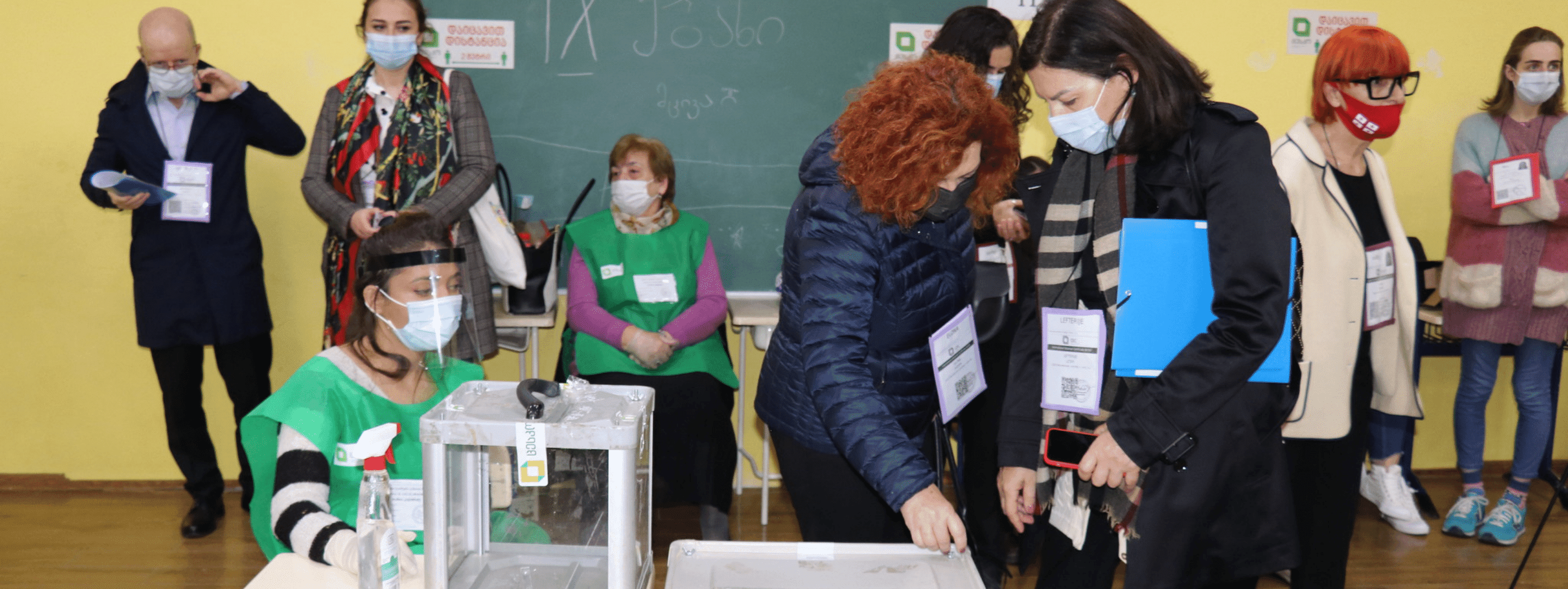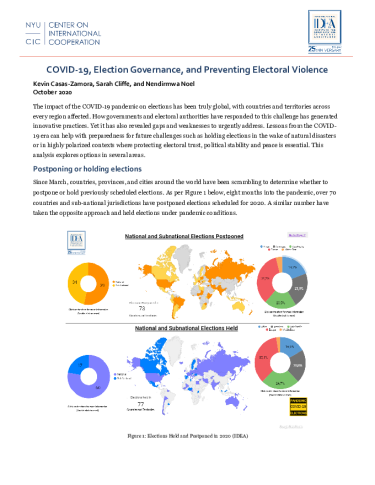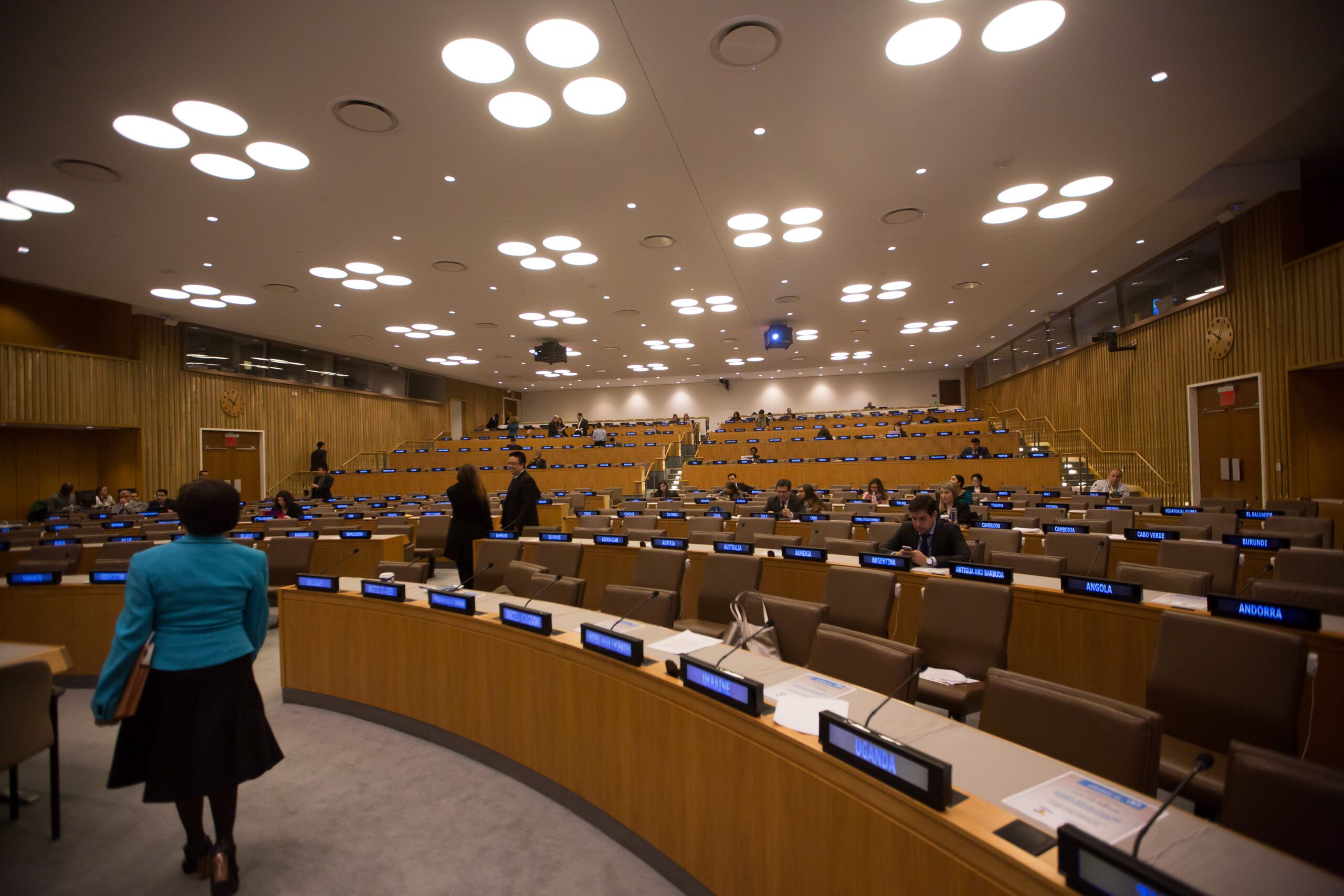The COVID-19 pandemic has had a global impact on the conduct of elections, with countries and territories across every region affected. Governments and electoral authorities have responded with innovative practices—but the challenges posed by the pandemic have also revealed gaps and weaknesses that must be addressed. Lessons from the COVID-19 era can help with preparedness for future challenges such as holding elections in the wake of natural disasters or in highly polarized contexts.

In this briefing, Kevin Casas-Zamora, the Secretary-General of the International Institute for Democracy and Electoral Assistance, joins CIC’s Sarah Cliffe and Nendirmwa Noel to take a look at how countries have handled elections during the pandemic so far, exploring options for ensuring good election governance and preventing electoral violence. The briefing examines decisions about postponing elections or holding them as scheduled, as well as changes to the campaigning and voting processes due to public health measures. It also addresses impact on turnout, lessons on the conduct of credible elections during COVID-19, lessons for preventing election-related violence, and approaches to combat electoral misinformation and disinformation.
Download the full briefing here.


